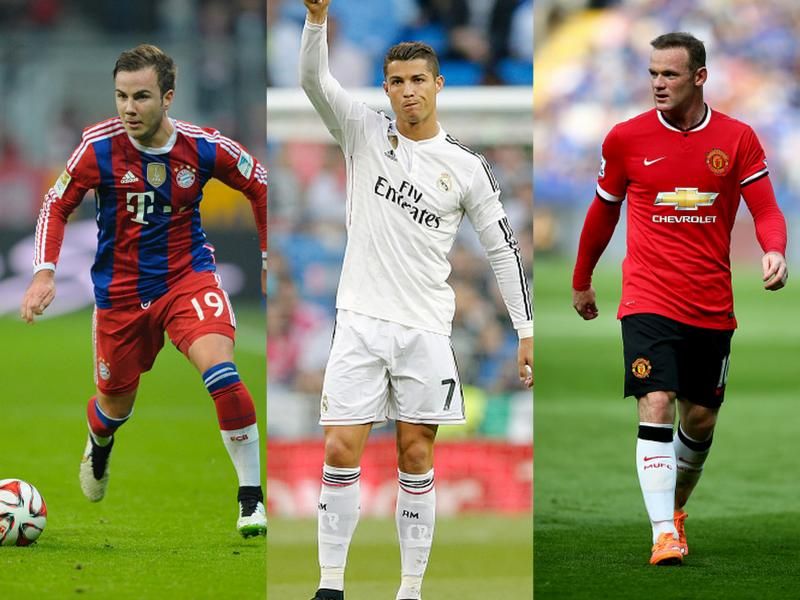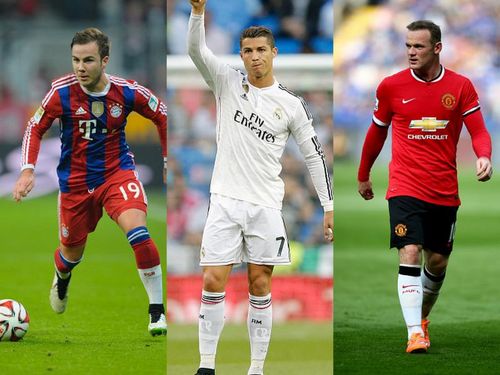
Bayern Munich, Real Madrid and Manchester United - The common weaknesses

Manchester United, Real Madrid, Bayern Munich all hail from contrasting societies and footballing cultures, they have striking similarities. For one, each of them has a history immense enough to make any fan proud.
They are still considered the most glamorous and instantly recognizable names of their respective leagues, not to forget the incredible comebacks they make time and again ( Cue: UCL Final 1999, La Liga Season Finale 2006/07, UCL Final 2001).
And of course, the fans resemble spoilt kids of rich parents who throw a tantrum when even one of their numerous toys (read trophies) is taken from them.
Yet, as the 2014/15 season draws to a close, these giants of football will only be partly satisfied with what they have achieved.
Old Trafford, which had become the Theatre of Nightmares last season, is presently heaving a sigh of relief at getting back into the top four, but the Red Devils are already wishing to return to the glory days of Sir Alex Ferguson.
Los Merengues, on the other hand, will consider this season to be a failure as it ends trophy-less a year after they completed the long-awaited La Decima. For the Allianz Arena faithful, meanwhile, it looks like more of the same - a Bundesliga title everyone expects them to win, a Champions League semi-final exit and – surprise, surprise – questions over where exactly Pep is taking FC Bayern: forwards, backwards or (much like their passing) sideways.
As it so happens, the cure of their maladies might be similar in more ways than one – whether it be first-team management, their short-term futures or in the general direction of the clubs in the coming years.

Defensive stability
Manchester United, since the heydays of Sir Alex, have been a counter-attacking team – a team that would absorb all the attack of the opposition, work hard together to win the ball back and on doing so, attack with deadly efficiency. Bayern Munich and Real Madrid had a similar approach and although Real relied more on individual skill rather than efficiency in attack, it acquired greater efficiency during Mourinho’s tenure.
Their game play at present, however, is markedly different. United under Dutch manager Louis van Gaal have become a possession-based team and have clocked possession upwards of 70% in some matches. Real Madrid too, have started to dominate matches by having a lion’s share of the ball, while Bayern’s manager is Pep Guardiola – enough said.
Such a style of play requires a different style of defending – one which is based more on defensive nous, skill, intelligence and quick decision-making rather than tireless running, brute force, bravery and flying tackles.
Furthermore, the defenders should be comfortable in possession and have an eye for a long ball, with a leader among them to organize them, keep them alert and direct them in dire situations when majority of the players are committed forward.
Manchester United have been found the most wanting in this respect. The possession culture seems alien to them (as it does to most of England) and nowhere was this more evident than in the beginning of the season when the United backline would panic each time they lost possession. The result- 5 points from the first 5 games, sterile possession dictated by the fear of conceding and unnecessary sending-offs for Tyler Blackett, Chris Smalling and Wayne Rooney.
As the season progressed, the United defence became more assured, both in and without possession, although Smalling’s ball-playing abilities and Jones’ composure (oh, not that face again!) left a lot to be desired.
More importantly, it showed United need a defensive leader- none of these two has shown either the desire or the aptitude for this role and Carrick, much as Red Devils would wish, won’t be around forever. From within the squad, Daley Blind may technically be a replacement at Carrick’s position, but whether he has the personality and the presence to fulfil his role remains to be seen.
Real Madrid, on the other hand, have practically fielded three no. 10s as a midfield trio for the majority of the season – Fiorentino Perez has, once again, succeeded in putting an extra layer of gold paint on the Bentley by selling the engine.
This meant more possession and more creativity but also led to slow transition from attack to defence and ineffective shielding of Sergio Ramos and Pepe, who although being accomplished and experienced footballers themselves, can only do so much.
The huge gaps between midfield and defence cost Real at various stages of the season against Real Sociedad, Valencia, Atletico Madrid and Juventus.
Bayern Munich, meanwhile, cannot complain about lack of personnel – a squad boasting the likes of Bastian Schweinsteiger, Philip Lahm, Xabi Alonso and Jerome Boateng has no right to be defensively vulnerable, yet the losses to Wolfsburg, Monchengladbach, Porto and Barcelona must worry Die Roten fans who, just 2 years ago, saw their team win a treble starting from the back.
Dante, the rock of that season, suddenly seems vulnerable to counter-attacks, Lahm and Schweinsteiger have not had the influence of yester-seasons through a combination of injuries and advanced midfield roles and Xabi Alonso is fast losing his legs, at least when it comes to running towards his own goal.
The return of Javi Martinez and Badstuber might help but Pep, suffice to say, he must be missing Puyol as much as, if not more than Messi.